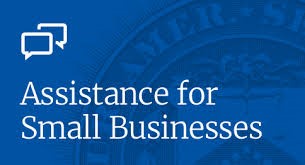CARES Act Tax Breaks for Small Businesses

Shutterstock Image
Recognizing that small businesses are the backbone of the U.S. economy, the federal government has opened the cash spigot to help them stave off the pandemic crisis. While Payment Protection Program (PPP) loans and expanded unemployment benefits have garnered all the headlines, the Coronavirus Aid, Relief, and Economic Security (CARES) Act has also delivered several significant tax breaks for small businesses. Regardless of the size or type of your business, there’s at least one tax break among these new programs that is likely to bring you added relief.
Payroll Tax Delayed Through December 31
Your 6.2% employer share of Social Security taxes owed on wages paid between March 27 and December 31, 2020 can be deferred over the next two years. Half of the deferred amount must be paid by December 31, 2021, and the other half is due by December 31, 2022.
If you’re self-employed, you can defer half of your self-employment tax over the same period.
It’s important to note that if you received a loan under the PPP that has been forgiven because you retained your employees, you are no longer eligible for this tax break.
Payroll Tax Credit
If your business was forced to close or reduce hours due to the COVID-19 crisis, and you managed to retain your employees, or your gross receipts in a quarter declined by more than 50% compared to last year, you are eligible for a payroll tax credit. The credit of up to $5,000 is available to offset your 6.2% share of Social Security taxes on wages paid between March 13 and December 31, 2020
You can receive this credit by either reducing the employment tax deposits you normally pay by the amount of the credit, or by filing IRS Form 7200 for an advance payment for credits in excess of your payroll tax deposits.
If you have received a PPP loan, you are not eligible for the credit.

Treasury Dept. Image
Temporary Suspension of Pass-Through Loss Cap
The CARES Act has temporarily suspended the cap on eligible deductions for pass-through losses incurred from 2018 through 2020. The cap, which was instituted under the 2017 Tax Cuts and Jobs Act (TCJA), had limited the offset of Net Operating Losses (NOLs) against non- business income to $500,000 for joint filers and $250,000 for single filers.
Net Operating Loss Carrybacks are Back
The TCJA eliminated the two-year carryback period for NOLs, while extending the carry forward to an indefinite period, and limiting NOLs to 80 percent of taxable income. The CARES Act temporarily restores the NOL carryback for a five-year period for losses incurred in 2018 through 2020, and temporarily removes the 80 percent of taxable income limitation for tax years beginning before January 1, 2021.
Expanded Interest Deduction
Under the TCJA, the deduction for interest on business debt was limited to 30% of Adjusted Taxable Income (ATI), with any excess deduction required to be carried forward. Under the CARES Act, the net interest deduction cap is temporarily increased to 50% of ATI for 2019 and 2020.
Deduction for Charitable Gifts Expanded
For 2020, the CARES Act increases the allowable charitable deduction for corporations from 10% of annual taxable income to 25%. The deduction cap for 2020 contributions of food inventory is also increased, from 15% to 25%.
The “Retail Glitch” is Fixed
Due to a drafting error in the TCJA, retailers and restaurants were not included in a provision that provides businesses with an immediate 100% bonus depreciation for the costs of short-lived investments, such as leasehold improvements. The CARES Act corrects the error, retroactive to the 2018 tax year.
Seek Professional Tax Advice Now
It’s important to note that most of these tax breaks are temporary, and many have complex requirements attached to them. Now is the time to meet with your tax advisor to review these tax breaks to take full advantage, especially with those that are retroactive.
